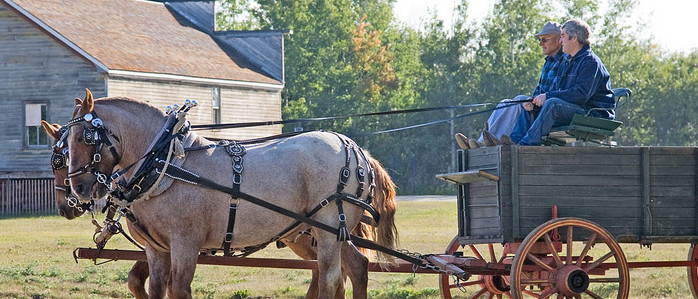I have worked with church planters for over fifteen years. During that time I have spent hundreds of hours providing training, coaching and resources to a wide variety of planters. Regardless of the church planter’s approach to planting, I have discovered that in almost every case the planter moves too quickly towards pragmatism.
Planters want to know what “works.” They want to know what other “successful” planters are doing. What strategies or techniques are helping church plants start strong and grow quickly?
In other words, they put the ecclesiastical cart before the horse.
Instead, I have come to realize that our ecclesiology – especially in a post-Christian context – must flow directly out of serious theological and missiological reflection.
Church Planting within the Mission of God
As a result of the practical ecclesial questions that most planters ask, the vast majority of church planting resources are bent towards how to do church better. Most books deal with the nuts and bolts of church planting. An exception to this trend is a book written in 2001 by Stuart Murray called Church Planting: Laying Foundations. Murray’s book is one of the finest written on the topic of church planting. He offers a very helpful emphasis on both the theological and historical framework for church planting.
When discussing the theological foundation for planting, Murray argues that all church planters operate within some theological framework, but most often these frameworks are simply assumed, and not clearly articulated. He states that while inadequate theological reflection will not necessarily hinder short-term growth, it will limit the long-term impact of church planting and may result in distortions in the way in which the mission of the church is understood.
I appreciate how Murray sees church planting as one aspect of the mission of God in which churches are privileged to participate. The church can understand the scope and implications of participating in God’s mission, and the place of church planting within it, in relation to three important theological concepts; the Kingdom of God, incarnation, and missio Dei.
In regards to the concept of missio Dei Murray shares these insights:
Missiologists have increasingly been drawn to this phrase to express the conviction that mission is not the invention, responsibility, or program of human beings, but flows from the character and purposes of God. Historically, the term mission was first used by theologians to refer to the acts of God, rather than the activities of the churches.
God is the Missionary, who sent his Son and sends his Spirit into the world, and whose missionary purposes are cosmic in scope, concerned with the restoration of all things, the establishment of shalom, the renewal of creation, and the coming of the kingdom of God, as well as the redemption of fallen humanity and the building of the church. Mission has a trinitarian basis and is theocentric rather than anthropocentric. Mission is defined, directed, energized, and accomplished by God.
For church planting this has considerable significance. First, the inevitable interest in internal church structures which characterizes church planting initiatives, as plans are developed for the formation of a new congregation, must not subvert the primary focus on the mission to which this new church is being called. Missio Dei is toward the world rather than the church.
Second, the broad scope of missio Dei must not be reduced to evangelism or church planting. Church planting is legitimate only if set within a broader mission context. Church planting can too easily embody a limited vision of mission that concentrates on one or two aspects of this mission (usually evangelism and church growth) to the neglect of other vital aspects (including working for justice and peace within society, concern for the environment, and engagement with culture).
Three Questions for Planting within the Missio Dei
Consider these three questions:
- As a church planter, how are you going to broaden your vision of missio Dei?
- How will you guard against having the church turn inward towards church functions and maintenance?
- What other resources have helped you maintain a broader understanding of missio Dei?
Share this Post

